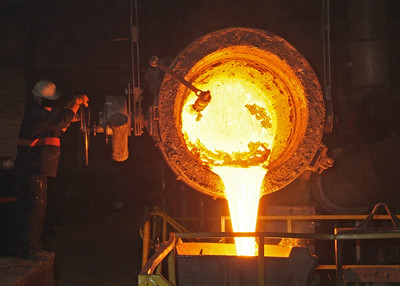Why study progress?
The progress of the last few centuries—in science, technology, industry, and the economy—is one of the greatest achievements of humanity. But progress is not automatic or inevitable. We must understand its causes, so that we can keep it going, and even accelerate it. Read more »
We need a new philosophy of progress
In order to make progress, we must believe that it is possible and desirable. The 19th century believed in the power of technology and industry to better humanity, but in the 20th century, this belief gave way to skepticism and distrust. We need a new way forward. Read the essay »
Subscribe
Get essays and announcements by email:
Or via Twitter (@rootsofprogress), Reddit (r/rootsofprogress), or RSS.
The Techno-Humanist Manifesto
The Techno-Humanist Manifesto is a book laying out a new philosophy of progress.
“Techno-humanism” is my name for that philosophy, a worldview founded on humanism and agency. It is the view that science, technology, and industry are good—not in themselves, but because they ultimately promote human well-being and flourishing. In short, it is the view that material progress leads to human progress.
The purpose of the book is to present a moral defense of material progress, and a framework the progress movement can use to understand what we are doing and why. It will present a bold, ambitious vision of a future that we want to live in and will be inspired to build. It will acknowledge, even embrace, the problems of progress, and point towards solutions. And it will show how progress can become not only a practical but a moral ideal—giving us a goal to strive for, a heroic archetype to emulate, and a responsibility to live up to.
This book is first and foremost for the scientists, engineers, and founders who create material progress and who are seeking to understand the moral meaning of their work. It is also for intellectuals, storytellers, and policy makers, to inform and inspire their thinking and writing. More broadly, it is for everyone in the progress movement, and for anyone who is curious to learn what we are about.
The first draft of the book will be serialized here blog and on Substack, one essay at a time. See the announcement for the table of contents with links to published chapters.
The Roots of Progress Institute
The Roots of Progress Institute (RPI) is a nonprofit dedicated to building a culture of progress for the 21st century. RPI grew out of this blog and now supports this work. The organization also runs a fellowship for progress writers and hosts an annual progress conference.
Featured essays: The history of technology

Iron: From mythical to mundane
Until a few thousand years ago, iron was virtually unknown. Now, high-quality steel is everywhere around us

Instant stone (just add water!)
If cement weren't 10,000 years old, it would seem like a futuristic technology: liquid rock!

Turning air into bread
What is the Haber-Bosch process? It's what keeps billions of people in the modern world from starving to death

Why AC won the Electricity Wars
DC was doomed from the start—not for lack of backers, since it was favored by the world-renowned Thomas Edison, but by physics and economics

Navigating the high seas
The hazards of the sea are many. But of all the challenges facing the sailor, the biggest was simply knowing where you are

The history of smallpox & the origins of vaccines
Smallpox was one of the worst diseases in history. This is the story of how we killed it

Why did we wait so long for the bicycle?
The bicycle, as we know it today, was not invented until the late 1800s. Here are some theories about why
Featured essays: The philosophy of progress

Progress studies as a moral imperative
Progress is real and important, but it is not automatic or inevitable. We must understand its causes, so that we can protect them and reinforce them

Progress studies as a civic duty
We have a responsibility to learn the underpinnings of the standard of living we all enjoy. To understand and appreciate how we got here, and what it took. And ultimately, to keep it going

Why I'm a proud solutionist (MIT Tech Review)
A third way that avoids both complacency and defeatism

We need a new philosophy of progress
The 19th century believed in progress; the 20th century grew skeptical. We need a new way forward

Industrial literacy
When you know these facts of history, you understand what “industrial civilization” is and why it is the benefactor of everyone who is lucky enough to live in it
Talks & interviews
Vox
The discipline of ‘progress studies’ wants to figure out what drives discoveries and inventions so we can supercharge human flourishing
The progress studies movement is very small — mostly a handful of bloggers and researchers — but it’s one of the more intriguing intellectual movements out there. One of its leading figures is Jason Crawford, the author of a blog called The Roots of Progress that explores the history of important inventions and discoveries…. I sat down with Crawford to talk about what progress is, what the progress studies movement brings to the table, and what he thinks is missing from our national conversation about inventions, discoveries, and the societies that succeed at encouraging them.
BBC
Do We Need a Better Understanding of ‘Progress’?
A growing and influential intellectual movement aims to understand why human progress happens—and how to speed it up
Ultimately, the progress community wants its followers to believe that they can do better. Multiple sources paraphrased the slogan “a better world is possible” in our discussions. For Crawford, the vision of that world animates him: “I want humanity to regain its self-esteem and its ambition, to figuratively and literally reach for the stars. I want us to dream of flying cars, fusion energy, nanotech manufacturing, terraforming planets, exploring the galaxy. So it’s not just about policy, but about people’s fundamental attitudes towards humanity and our place in nature.”
The Energy of Tomorrow: The Promise, Failure, and Possible Rebirth of Nuclear Power
In the 1950s, nuclear power was seen as the energy of the future. Today, it is stagnating on the sidelines, providing only 10% of world electricity, with no fundamental advance in reactor design for several decades. Why did this technology seem so incredibly promising, how did it go so badly wrong, and is there hope for a nuclear renaissance?
Lessons from the Wright Brothers
How the Wright brothers invented the airplane, and lessons for inventors and founders today: passion, iteration, first-principles thinking, and choosing the right time to launch.
Foresight Institute
In the 1960s, people looked forward to a “Jetsons” future of flying cars, robots, and nuclear power; today they at best hope to stave off disasters such as pandemics and climate change. What happened to the idea of progress?
Titans of Nuclear
“I think it’s this whole thicket of… the combination of the regulations, the utility companies and the way the entire utility market is structured, the nuclear companies themselves, and then the social substrate of this very anti-nuclear attitude in society. It’s all of those things working together to create this very complex problem.”
Ignite Long Now
Humanity has had a pretty good run so far. In the last two hundred years, world GDP per capita has increased by almost fourteen times. But “past performance may not be indicative of future results.” Can growth continue?




